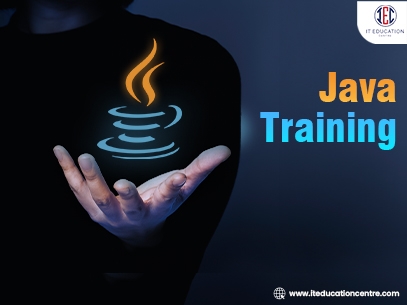Exploring the Fundamentals of Java Programming"

Java is one of the most popular programming languages in the world, with a wide range of applications and uses. Whether you are a beginner looking to learn the basics of programming or an experienced developer looking to expand your skillset, understanding the fundamentals of Java programming is crucial.
In this blog post, we will explore the key concepts and foundations of Java programming that will help you become a well-rounded developer.
1. Object-Oriented Programming (OOP):
One of the main principles of Java is its support for object-oriented programming. OOP is a programming paradigm that organizes code into objects, which are instances of classes. In Java, everything is considered an object, which means that you can create and manipulate objects to perform various tasks.
2. Variables and Data Types:
In Java, variables are used to store and manipulate data. Before using a variable, you need to declare its data type, which defines the kind of data that the variable will hold. Java supports several data types, including primitive types (such as int, float, and boolean) and reference types (such as String).
3. Control Flow:
Control flow refers to the order in which instructions are executed in a program. Java provides several control flow statements, including if-else statements, for loops, while loops, and switch statements. These statements allow you to control the flow of your program and make decisions based on certain conditions.
4. Methods:
Methods in Java are blocks of code that perform a specific task. They can be used to break down a complex problem into smaller, more manageable pieces. Methods can take in parameters and return values, allowing you to reuse code and make your programs more modular and organized.
5. Exception Handling:
Exception handling is a mechanism in Java that allows you to handle errors and exceptions that may occur during program execution. By using try-catch blocks, you can catch and handle exceptions gracefully, preventing your program from crashing. Exception handling is essential in writing robust and error-free code.
6. Input and Output:
Java provides a wide range of classes and methods for performing input and output operations. The most commonly used classes for input and output are the Scanner class and the System.out.println method. These tools allow you to communicate with the user, read and write files, and interact with external devices.
7. Arrays:
Arrays are used to store multiple values of the same data type in Java. They provide a convenient way to store and manipulate collections of elements. Whether it's a list of names or a collection of numbers, arrays can be used to efficiently handle this data in your Java programs.
8. Inheritance:
Inheritance is a key feature of object-oriented programming that allows you to create new classes based on existing ones. In Java, you can create a class that inherits properties and methods from another class. This promotes code reuse, as you can add new features to a subclass without modifying the parent class.
9. Polymorphism:
Polymorphism is another important OOP concept in Java. It allows you to use a single interface to represent different forms or types. This means that you can have multiple classes that implement the same interface or inherit from the same superclass but have different implementations of methods.
10. Packages and Modules:
Java provides a system for organizing your code into packages and modules. Packages are used to logically group related classes and provide a namespace to avoid naming conflicts. Modules, introduced in Java 9, allow you to further modularize your code and encapsulate dependencies.
Online Java training in Nagpur
In summary, exploring the fundamentals of Java programming is essential for anyone looking to build a solid foundation in software development. From object-oriented programming and control flow to exception handling and input/output operations, understanding these concepts will help you write clean, efficient, and maintainable code. As you continue to explore Java, you'll discover its vast ecosystem of libraries and frameworks that can further enhance your programming capabilities. So, roll up your sleeves, dive into Java, and embark on an exciting programming journey!
- Industry
- Art
- Causes
- Crafts
- Dance
- Drinks
- Film
- Fitness
- Food
- Games
- Gardening
- Health
- Home
- Literature
- Music
- Networking
- Other
- Party
- Religion
- Shopping
- Sports
- Theater
- Wellness
- News


